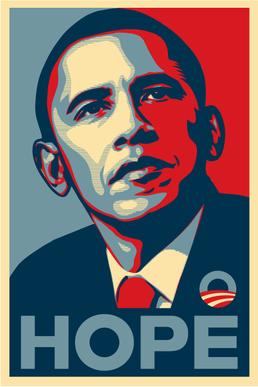The psychological work of exercising healthy autonomy is challenging when it is seated in individualism and seeded with identity politics.

According to the Richmond Co Daily Journal, Jacob Mumford decided to hold a “Heritage Ride” after seeing news reports about calls to ban the Confederate flag. He said about the demonstration, “It don’t represent racism. It just represents my heritage, being raised in the South, Southern pride. That’s all it means to me.” He was trying to be someone, the newspaper was reporting it, the country was protecting it.
Mumford was reacting to the great cleansing that began after Dylan Roof murdered nine loving people in an historic Black church in Charleston. In 2015 the National Park Service ordered all Confederate flags and merchandise to be removed from all parks under the agency’s direction, including Fort Sumter and Gettysburg. By 2021 the massive Robert E. Lee statue in Richmond was removed, symbolizing the ongoing deconstruction of white supremacy intertwined with everything American.
The untwining is far from over and the pickups still parade. Alongside the Confederate flag a driver often has the yellow Gadsen flag, as in the picture above. It is the flag with “Don’t read on me” on it. “Don’t tread on me” has been an assertion of national autonomy for over 200 years, and now personal, pickup autonomy. I saw the same display in Lansdale the other day.
Christopher Gadsen designed his anti-British flag in the run-up to the Revolutionary War. The timber rattlesnake on it was something of a Colonial-era meme, evidently created by Benjamin Franklin. The snake is unique to the Eastern U.S. and came to symbolize a new country ready to bite anyone who stepped on it. The symbol stuck around. You can get a specialty license plate with the Gadsen flag on it in nine states. You can say your license plate is about “heritage,” but Gadsden was a slave owner and trader, who built Gadsden’s Wharf in Charleston, South Carolina. As many as 40% of enslaved Africans who were brought to the U.S. first arrived there. You can say it is about southern pride, but don’t leave out the white supremacy and dread people feel when the pickups parade. I felt some fear when I saw one on the Turnpike!
Around the Time the Philadelphia Union was using the flag in 2006, the “Tea Party,” anti-tax Republicans began using it. They used it to communicate the U.S. government had become the oppressor threatening the liberties (I would say the unhealthy sense of autonomy) of its own citizens. By the time it was prominently displayed at the January attack on the U.S. Capitol, white men were flying it on their pickups to communicate they would not be replaced, not be tread on – especially by Blacks and not by immigrants “flooding the borders.”
Fighting for freedom
In the United States, liberty is life. Like the slave-capitalism that dominates it, the powerful dole out freedom to their tribe. But even the lowliest feel a taste for “freedom,” for individual rights, to be one’s unencumbered self able to make as much money as they can. Even Barack Obama and Bruce Springsteen, whose great wealth and power make them free, echoed this urge in the title their recent book Renegades: Born in the USA. As he was selling the book via NPR, Obama said,
So the truth is that either we tell each other stories that allow us to see each other as fellow travelers and humans, or we have conflict and clash, and whoever gets the most power wins. And I would argue that at its best, America’s been able – with a pretty major exception in the Civil War – to try to make progress and perfect the union without resort solely to violence, solely to power.
I keep wondering if the authors were riffing on Taylor Swift’s “Renegade” in which she sings, “You wouldn’t be the first renegade to need somebody.” They might have subtitled their book, “Meditations on our recovery from ‘Don’t tread on me.'”
I connect the search for freedom in all its perverse and noble forms as part of our drive to achieve the healthy autonomy we need as humans to become our true selves. It is the natural movement Paul describes as leaving the old self behind and taking on the new self restored in God’s image. We all need to have an experience of I AM in relation to God just like Jesus demonstrates His place in the community of the Trinity. The Gadsen flag states “I am an expression of power” the Jesus-follower insists “I am an expression of right relationship with Love.”
Nurturing good autonomy
How we do psychotherapy and relate in other ways requires many choices about how to handle everyone’s need for autonomy and our perverse lust for power.
I think “good autonomy” is when a person gets a sense of their true self operating freely. It is like the experience of getting the training wheels off the bike, feeling your own balance, moved by your own power, and even pedaling out of your parents sight and control. It is the freedom Paul writes about in Galatians: a life not defined by law, but confident in one’s reality as a person made in God’s image, the beloved of God whose life is eternal in Christ. I think of that autonomy as “I am-ness.”
There is a dangerous autonomy, however, lurking in the word. Nomos is Greek for “law”. Auto-nomos mean “makes its own laws.” It would be great if Palestinians had this political right. It is not so great when individuals assume they are a law unto themselves and must be. One of my grandsons calls his brother the “dictator from the second grade” because he does think he should make all the rules. I think that is an example of what dangerous autonomy can do to community. When we, as therapists, parents or leaders protect someone’s autonomy to be themselves and make their own rules as if their freedom should be inviolable, we do them a disservice. We may condemn them to be alone, going their own way according to their undisturbed thinking and feeling. We can hope God is disturbing them, which is usually the case, but the weaker among us could get the impression they are on their own and should be, even though they are connected to various communities and are part of creation.
Protecting a person’s personal freedom as a primary goal might be like giving them a bike so they can figure out how to ride it on their own. Personally, I was a bike-stealer as a child. I stole the neighbor’s bike and rode to kindergarten (which was illegal). I parked it in the rack right in front of the principal’s glass-paneled door. I stole my brother’s big bike when I was not tall enough to reach the pedals and crashed it into the curb. My father liked my gall but had to punish me anyway. My parents often left me alone to figure stuff out — and I did. But I also felt alone, which is worse than not figuring things out. And their neglect/appreciation for my independent spirit may have made me a little thief. It is in mutuality we thrive. Subject to a spirit of individualism in the U.S. and painfully alone, a lot of people can’t even give a full body hug because it feels like a violation or improper. What they need more than autonomy is to attach to God and others.
The best autonomy is mutual
The dialogue in the Bible about autonomy is all about having a relationship with God, first of all, then loving others. Jesus followers teach each other to accept every person and love them as they are right now. Such teaching includes freedom but also includes mutuality. My deepest freedom comes from right relationship. In love, my present limitations and boundaries are accepted and maybe even admired. In love, none of us are a law to another; we are all gifts who should be respected.

One of my psychotherapy clients wondered out loud if I knew a lot of thirtysomethings the other day (which I do). He doubted people could connect like I described healthy attachment. But I persist. Parker Palmer helps me persist. He is a gift from the Quaker homeland in Philadelphia. He added to the spirit of what I am trying to say in his well-known essay A Place Called Community. When he wrote his piece in 1977 I was in seminary and about to experiment in autonomy-defying intentional community – which was an irreplaceable education in love, truth and growth in the Spirit.
In his essay, Palmer says:
- If we promote autonomy in the individualist, psychotherapeutic and political sense we set up a society of dissociated individuals most suited to authoritarian government
- Mental and spiritual health is never just about oneself. It happens in our common suffering in the web of humanity. We build community to encourage health.
- Connection always breeds problems. Not connecting and leaving people alone in their autonomy creates even deeper problems.
When you fly the Gadsen flag or react to the flag as if it has power, you might be surrendering your healthy autonomy. Like Obama worries, we could get stuck in a perpetual fight for individual freedom. True renegades end up in friendship and mutual creativity, they appreciate one another’s true selves, and so undermine the endless power struggles of the world.












 The men’s retreat was full of wonderful stories about growth and pain and Jesus. I told parts of my story of transformation, as well. I said that my story had a wonderful factor in it. I may see my parents as having “whacked” the best parts of me whenever they surfaced like they were playing whack-a-mole. But in my hole I found Jesus. When I was a teen, and all my narcissistic props got knocked out from under me, I remembered Jesus in the deep hole of my depression.
The men’s retreat was full of wonderful stories about growth and pain and Jesus. I told parts of my story of transformation, as well. I said that my story had a wonderful factor in it. I may see my parents as having “whacked” the best parts of me whenever they surfaced like they were playing whack-a-mole. But in my hole I found Jesus. When I was a teen, and all my narcissistic props got knocked out from under me, I remembered Jesus in the deep hole of my depression.



